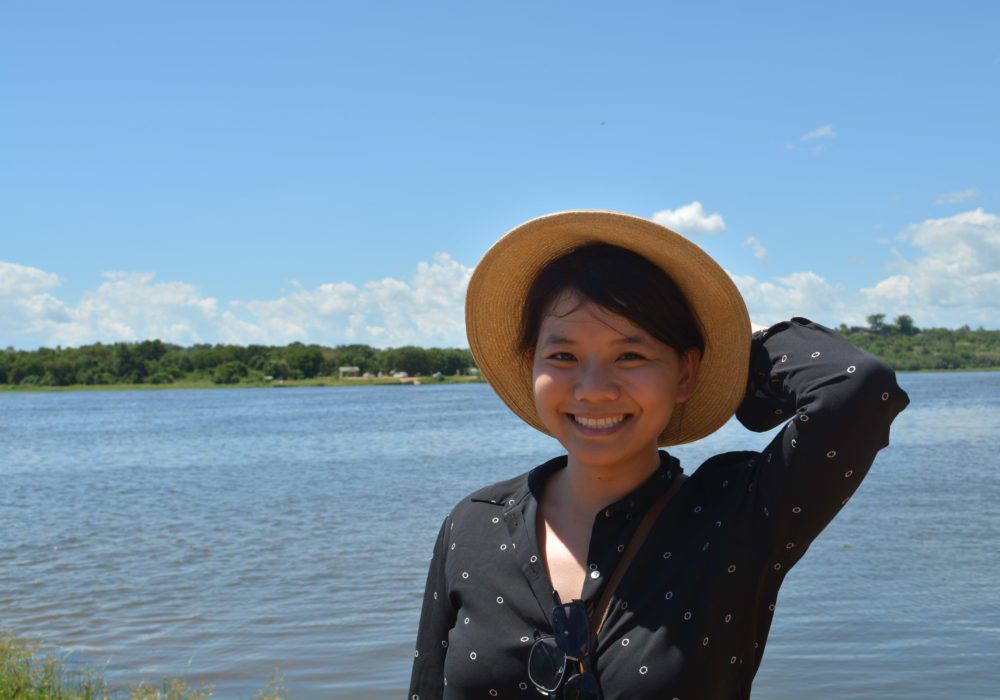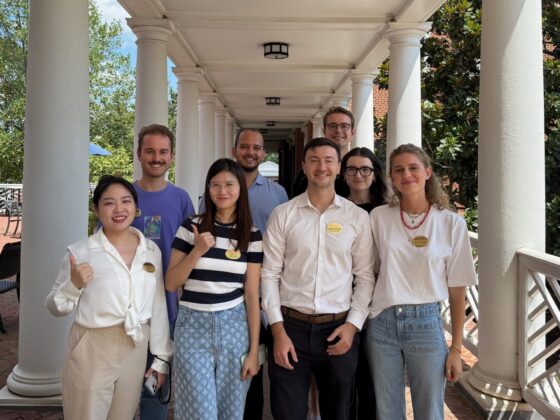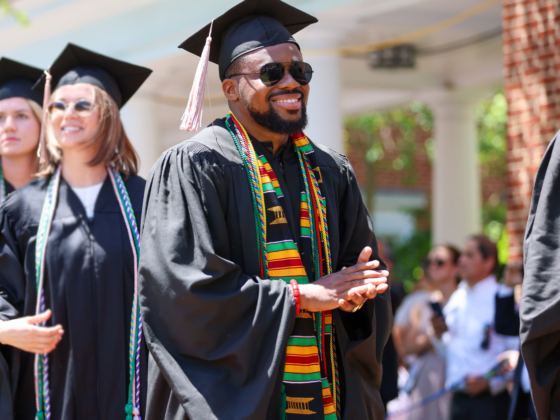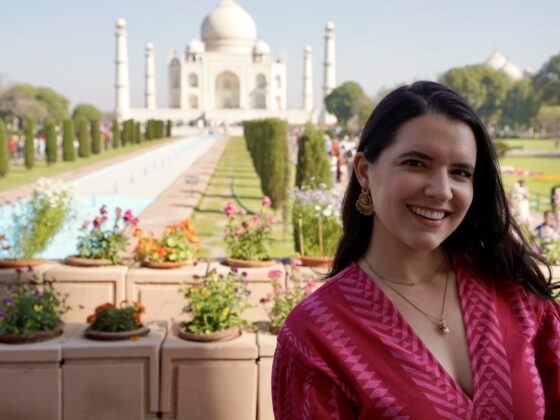Recent graduate T. Hoang Le (MBA ’18) attended Darden as an international student from Vietnam. She moved to the U.S. when she was 16 and proceeded to attend Bryn Mawr College where she graduated with a degree in Mathematics in 2013. Before coming to Darden, T. helped companies in the technology, telecom, and media (TMT) space optimize their data science strategies. Understanding that there is a limit to what big data can do, T. decided to pursue an MBA degree at Darden to learn to ask the right questions before coming up with the right answers. During her time in Darden, T. participated in four Darden global academic offerings, including three Darden Worldwide Courses to Uganda, Cuba and Israel, and a Global Consulting Project (GCP) with the Girls Education Initiative of Ghana.
Why did you want to participate in Darden Worldwide Courses (DWCs)? What specifically attracted you to these global offerings?
During my first year at Darden, I spoke with second years about their experiences on Darden Worldwide Courses, and they told me that some of their most unforgettable memories of Darden were from participating in global academic offerings like the Kaizen Projects. The courses sounded like great opportunities to learn about business cultures, practices and environments all around the world.
I went on the Uganda DWC in May of my first year because I was interested in how developing countries escape the orbit of poverty and became “developed.” It was amazing – the program was really well-run, Darden had a great in-country partner, and it was touching to get to know my classmates in a different environment. I was interested in visiting Israel because of its current political difficulties in the region, as well as its remarkable rise into the sole developed economy of the Middle East. Finally, I wanted to experience a consulting project in a different country, Ghana. The client was a girls’ education advocacy nonprofit that was founded by the sister of one of my learning-teammates! By the end of March 2018, I had looked back at my journey and realized how breathtaking it was to connect with people all over the world through the different Darden programs.
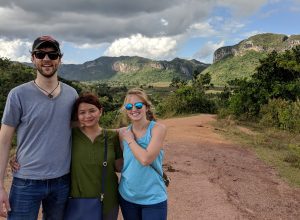
I will admit I have a particularly soft spot for Cuba. Stepping out from the plane into the airport felt like a sudden journey back in time, to Vietnam when I left it all these years ago. I saw terraced farms that were abundant in Vietnam, a visual example of globalization and cooperation between countries of similar political histories. Through Darden connections, we had access to members of governmental institutions, as well as some of the most prominent foreign investment organizations. In Cuba, I found the same hard-shelled, soft-hearted people who put their social identity and nationalism before anything else; our people both thirsted for a chance to take our lives into our own hands, and to prove ourselves to the world. In Cuba, I found Vietnam on the cusp of its emergence: a country bursting with potential, poised on the edge of something imminent.
Since most of the countries you visited through DWCs are developing countries, what is your opinion on the economic prospects for growth in these countries?
These countries are all very different – but what they all have in common is a formidable sense of entrepreneurship. Cuba, for example, has a good education system and hence a well-educated workforce but the political situation holds them back from harnessing the true value of its population’s potential, both as a labor force and a consumer market. Uganda and Ghana face analogous issues in that they both suffer from the effects of large-scale unemployment. Neither country has a flourishing public education system, which is just one of the many factors lending to their high levels of unemployment. I think there is huge potential for long-term growth in these countries if more resources could be put toward their educational systems. Other factors such as investments and legal reforms need to come together as well, but educating a workforce is a 20-year endeavor, and a nation should be ready for when the opportunity to employ that workforce presents itself.
How would you characterize your GCP experience with the Girls Education Initiative of Ghana? What was the most challenging or rewarding part of this experience?
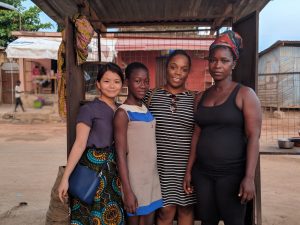
I was endlessly amazed, fascinated, and humbled by the work GEIG has done, and incredibly grateful to be able to help them in any measure. I had the perfect trifecta: a fantastic consulting partner, a great client, and a deserving cause that I love. I met Arica Booker, an Executive MBA (EMBA) student and my consulting partner for the GCP, on the Uganda DWC the year before (we had both decided to return to the other side of the continent!) Through her, I learned and connected with many of the EMBAs, who we in the residential program don’t usually meet. We both believed that giving girls equal access to education is not only the right thing to do, but also an incredible boost to a society and economy. The remarkable people at GEIG believed the same, and though their scale might be small yet, their impact has been powerful for the girls in their program.
It was while sitting under the hot tin roof of Aisha’s little sewing room, half an hour away from the main road, and listening to her financial concerns and fierce dedication to her daughter’s education, that I realized even more fully how fortunate I have been, to be born to parents who were not only dedicated, but also resourceful enough to follow through with that dedication. The women of GEIG, Elizabeth Patterson and Adwoa Frimpong, have taken on the extraordinary task of giving these mothers resources to help their daughters succeed. I have been even luckier to see that force of will, and to have used my business education to assist them in their cause.
How did participating in these Darden Worldwide Courses affect your Darden experience as a whole and your future career?
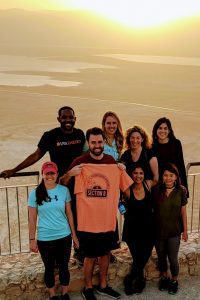
I didn’t come to Darden for the international courses. I’ve lived and traveled all over the world; my passport had been suitably stamped, abused, and cherished – or so I thought. These DWCs have shown me a new way to look at the world and have given me access in these countries I did not have, and would not have had, as a tourist. Learning from business leaders and government officials in various countries added depth to my understanding, besides the interactions I had with everyday citizens. It was also through these courses that I created deep bonds with my fellow classmates and professors. Dragging my unathletic self up the Masada Snake Path in Israel before dawn with one of my favorite professors will probably a treasured Darden memory for many a reunion.
These DWCs have convinced me that I need to do more than just travel to new countries – working in new countries will lend me new global perspectives and train me in adaptability, which are essential qualities for future leaders to possess. I have learned so much in these short courses; I could only imagine the potential growth and knowledge I could gain from an international career. I cannot wait to begin.

